Fertility in both woman and man can be affected by many factors. We asked experts at Virtus Fertility Centre what are the commonly asked questions on fertility.

1. What causes infertility?
Infertility in women can be caused by an ovulation disorder, blockages in the fallopian tubes or other complications in the uterine environment. Some of the most common conditions that can affect a woman’s fertility include Polycystic Ovarian Syndrome (PCOS), endometriosis and fibroids.
Infertility in men is most commonly due to no or very few sperm produced and/or found in the ejaculate. Sometimes sperm are malformed, and in rare cases, genetic diseases may be at fault.
Other complications can include immunological infertility, retrograde ejaculation, congenital absence of or blockages in the vas deferens (sperm ducts) or subnormal quality of sperm.
Fertility in both the woman and the man can also be affected by lifestyle choices such as smoking, excessive drinking or being severely under or overweight.
2. How does IVF work?
During an IVF procedure, sperm fertilize the eggs in a laboratory. ‘In vitro’ means ‘in glass’, as fertilisation happens in a glass (or plastic) dish, rather than in the fallopian tubes.
The female eggs are taken from the body and are fertilised with sperm in the laboratory. The resulting embryos are then placed back into the woman’s body for conception.
Step-by-step IVF treatment process
Step 1 Medication: Hormonal injections to stimulate the development of eggs (folliculogenesis).
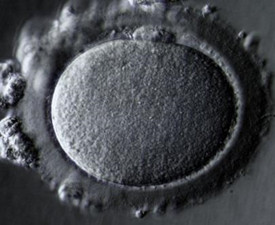
Human Egg
Step 2 Monitoring: To monitor the number and growth of follicles.
Step 3 Egg collection day: Eggs are retrieved after 10-12 days of hormonal stimulation.
Step 4 Fertilization: Eggs are inseminated with sperm to effect fertilization.
Step 5 Embryo Development: Fertilized eggs (embryos) are monitored for 5-6 days of development to blastocysts, the final stage of embryo development before implantation.
Step 6 Embryo transfer: A single blastocyst is usually transferred into the woman’s womb.
Step 7 Pregnancy test: A blood sample is taken 14-16 days after embryo transfer for pregnancy test.
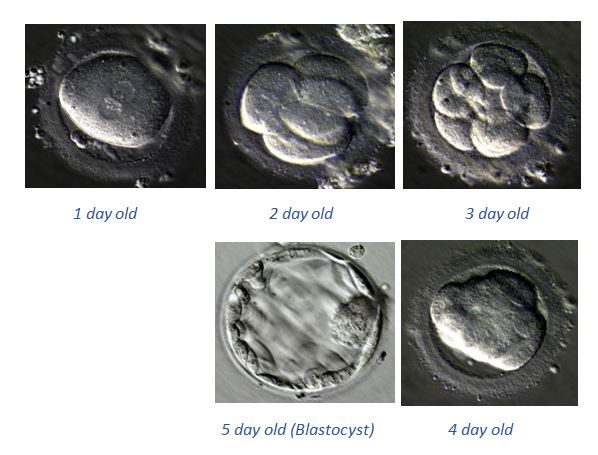
Early human embryo development
3. How long does IVF take?
The in vitro fertilization process can last anywhere from four to six weeks prior to egg retrieval. The embryo(s) will then be implanted at the blastocyst stage. Not all patients are successful on their first IVF attempt; in fact, it’s not uncommon for patients to go through multiple IVF cycles before finally becoming pregnant.
4. What are the success rates?
When it comes to IVF, there is no agreed standard for reporting “success”.
Sometimes IVF success rates are quoted per completed IVF treatment cycle – a complete IVF collection and treatment cycle can involve multiple transfers of embryos collected from the one egg collection.
Success rates measured this way will therefore naturally be higher than success rates measured per embryo transfer.
Sadly, not every pregnancy will carry to a live birth, so we also measure live births per embryo transfer. We report our success rates per embryo transfer as we want to give you the most realistic understanding of your chance of success following each individual embryo transfer.
However, it is important to understand that not every treatment cycle will result in an embryo transfer. For some women, no eggs will be collected and, sometimes after eggs have been collected, there may be no transfer because embryos have not developed.
It is therefore important to understand what part of the IVF treatment cycle a particular statistic is measuring. Even after you check this, there are factors that need to be understood before you attempt to compare IVF success rates.
5. Am I too old for IVF?
Once you turn 36, your chance of conceiving naturally is half of what it was when you were 20. By the time you are 41, your chance is just 4%.
If you are aged over 35 and have not fallen pregnant within six months of trying, we recommend seeking medical advice. If you are under 35, you can wait up to 12 months before seeking specialist help.
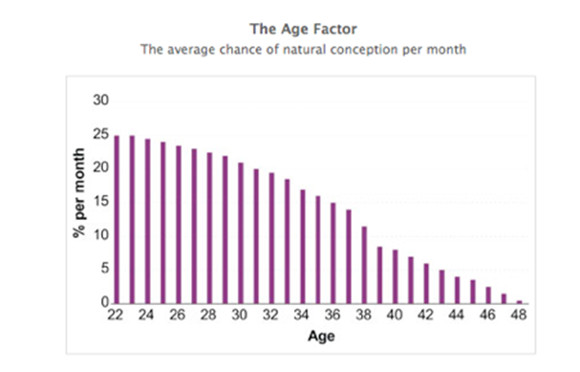
See also: Pregnant After 35: What to Note
6. How much does IVF cost?
The costs vary based on recommended treatment plan by your fertility doctor. Some estimates of out-of-pocket costs for fertility treatment with Virtus Fertility Centre are as follows:
| IVF or IUI Treatment | Cost | |
| Basic Fertility Assessment | Pelvic ultrasound for the woman, a semen analysis for the man and combined couple consultation by Fertility Specialist | $299 |
| Oocyte (Egg) Retrieval | All inclusive of doctor’s fees, anaesthetist fees, operating theatre & recovery room charges, laboratory charges (ICSI/IMSI, Blastocyst culture) and freezing & storage of embryos for 90 days | $8,800* – $9,500** |
| Embryo Transfer | All inclusive of doctor’s fees, operating theatre, recovery room charges and laboratory charges (embryo thawing if necessary, assisted hatching) | $4,000 – $5,300** |
| Intrauterine Insemination (IUI) | All inclusive of doctor’s fees, facility fees and laboratory charges including catheter | $880 |
7. All my tests are clear – why aren’t we getting pregnant?
Healthy people can still have issues affecting their fertility. Medical conditions and genetic disorders can affect fertility, whatever your age. The most important factor affecting your ability to conceive is the woman’s age.
Once a woman turns 36, her chance of conceiving naturally is half of what it was when she was 20. By the time a woman is 41, her chance of conceiving naturally each month is around 5%.
See also: A Mother’s IVF Journey
8. What can I do to optimise my/my partner’s fertility?
If your partner has been diagnosed with male fertility problems such as low sperm count or low sperm motility, there are available treatment methods to help you conceive. IntraCytoplasmic Sperm Injection (ICSI) is a form of treatment typically part of the IVF cycle.
The difference lies in how fertilization is achieved. Instead of adding the sperm to the egg, a skilled embryologist uses very fine micromanipulation equipment to inject a single sperm into each egg.
Used together, IVF and ICSI are among the most common assisted reproductive techniques used around the world, and this advanced procedure has helped many thousands of couples achieve their dream of having a baby.
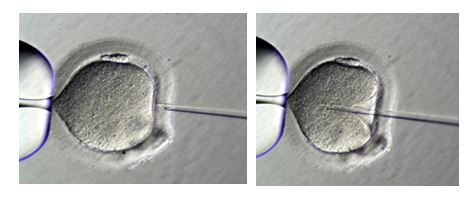 IntraCytoplasmic Sperm Injection (ICSI)
IntraCytoplasmic Sperm Injection (ICSI)
For men with severely reduced levels of sperm morphology (size and shape) or with mid-or-high range DNA- damaged sperm, there is an increased risk of miscarriage and reduced clinical pregnancy rates – even with ICSI treatment.
Other treatment options for these men, such as the surgical extraction of sperm (TESE), carry surgical risk and are relatively expensive.
The other option available is the Intracytoplasmic Morphologically-selected Sperm Injection (IMSI) treatment. This technique allows the laboratory to enlarge the images of sperm to over 1200 times its actual size.
By comparison, standard ICSI treatment only offers 200-400 times the magnification of sperm. The embryologist then uses pre-defined sperm sizes and shape to select the most appropriate or healthy sperm to be injected into the egg.
This technique offers our patients a significant increase in fertilisation and pregnancy rates, and a reduction in miscarriage rates.
9. Is IVF the only option?
Other fertility treatments such as IUI (where prepared semen is inserted through the neck of the womb or cervix close to the time of ovulation) is also another option.
Based on the results of your fertility assessment, your fertility specialist will determine your best path to pregnancy. This may involve lifestyle changes, better timing of intercourse or surgery to rectify any underlying conditions.
10. Are there any side effects associated with IVF?
Fertility medications can cause mood swings, headaches, hot flushes, abdominal pain, and bloating. In very rare cases, fertility medication may induce ovarian hyper-stimulation syndrome (OHSS), which can produce more severe symptoms such as:
- Nausea or vomiting
- Shortness of breath
- Decreased urinary frequency
- Feeling faint
- Significant weight gain within three to five days
- Severe stomach pain and bloating
- Potential side effects after IVF treatment may include:
- Passing a tiny small amount of clear or blood coloured fluid after the procedure
- Mild bloating
- Mild cramping
- Breast tenderness
- Constipation
11. Are there any restrictions while undergoing IVF?
Yes, there are recommended guidelines to follow during the IVF process and into pregnancy.
- Smoking
It’s recommended that both partners stop smoking at least three months before beginning an IVF cycle, and before ovulation induction begins. The effects of tobacco have been shown to be toxic and harmful to a woman’s eggs.
- Drinking
Alcohol should be avoided at the outset of IVF treatment, until one’s pregnancy test, and if pregnant, until the birth of the child.
- Medications
It’s important to inform your doctor if you’re taking any prescription or over-the-counter medications. Some medicines can interfere with the prescribed fertility medication, or embryo transference, and others may not be safe to take before surgery.
- Vigorous exercise
Intense physical activities like aerobics, weightlifting and running are prohibited during ovarian stimulation and until the results of one’s pregnancy are known.
- Supplements
Herbal supplements are completely prohibited during the IVF process.
This article is contributed by Dr Liow Swee Lian, Scientific Director, Virtus Fertility Centre Singapore. Images provided by Virtus Fertility Centre.
Top image from Unsplash.
* * * * *
Like what you see here? Get parenting tips and stories straight to your inbox! Join our mailing list here.
Want to be heard 👂 and seen 👀 by over 100,000 parents in Singapore? We can help! Leave your contact here and we’ll be in touch.





































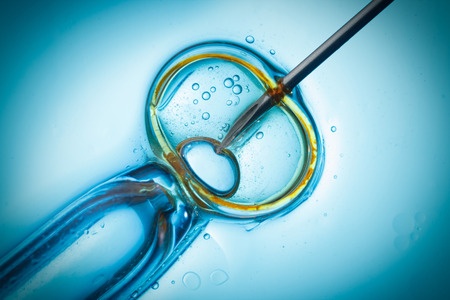



















Leave a Comment: